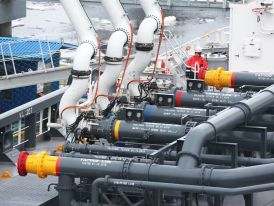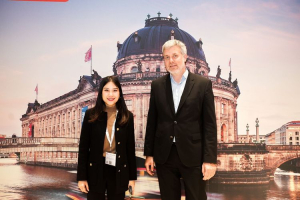Separation of ministries expected to have minor impact on business players
The separation of the Ministry of Tourism and Creative Economy into two distinct entities is not anticipated to significantly affect the tourism industry, according to business leaders.
Haryadi Sukamdani, Chairman of the Indonesian Tourism Industry Association (GIPI), noted that a similar move occurred during President Joko “Jokowi” Widodo’s first term from 2014 to 2019, and it primarily impacted government operations, not industry players.
"During the last separation, it took the government some time to adjust, but for business players, there was no real issue," Haryadi told Katadata.co.id on Wednesday, October 16, 2024.
Reflecting on the 2014 experience, Haryadi explained that it took around a year for the newly formed Creative Economy Agency to function efficiently.
He predicts that regulatory adjustments related to the creative economy may only take effect by the end of next year, but these changes are not expected to have a significant impact on tourism and creative economy businesses.
Secretary General of the Indonesian Hotel and Restaurant Association (PHRI), Maulana Yusran, welcomed the decision to split the Ministry of Tourism and Creative Economy into two separate entities, citing the vast scope of both sectors.
Tourism, which consists of 13 sub-sectors, and the creative economy, with 17 sub-sectors, each require focused attention. Maulana believes that this separation could speed up the resolution of issues affecting both industries.
He further argued that splitting the ministries would help improve Indonesia’s competitiveness in the Southeast Asian tourism market, where the country currently ranks fifth, behind Vietnam.
Maulana suggested that the newly established Ministry of Tourism should focus on revising regulations that have tourned out to be challenging for the industry, such as mandatory halal certification, high entertainment taxes, and expensive domestic airline tickets.
"The current state of the tourism industry is quite complex, particularly in the hotel and restaurant sectors," Maulana said, on Wednesday, October 16, 2024.
On the creative economy side, Maulana argued that forming a separate Creative Economy Agency would enhance the management of the creative industries on a national scale.
He pointed out that the government has primarily supported micro to medium-sized creative businesses, while larger-scale creative industries have received little attention in the past five years.
This lack of support, he added, has contributed to the country’s low competitiveness in the tourism industry.
"The key issue the government needs to address in order to move forward is how to foster healthy competition," Maulana concluded.
Tag
Already have an account? Sign In
-
Start reading
Freemium
-
Monthly Subscription
20% OFF$29.75
$37.19/MonthCancel anytime
This offer is open to all new subscribers!
Subscribe now -
Yearly Subscription
33% OFF$228.13
$340.5/YearCancel anytime
This offer is open to all new subscribers!
Subscribe now







